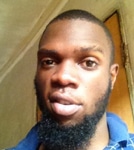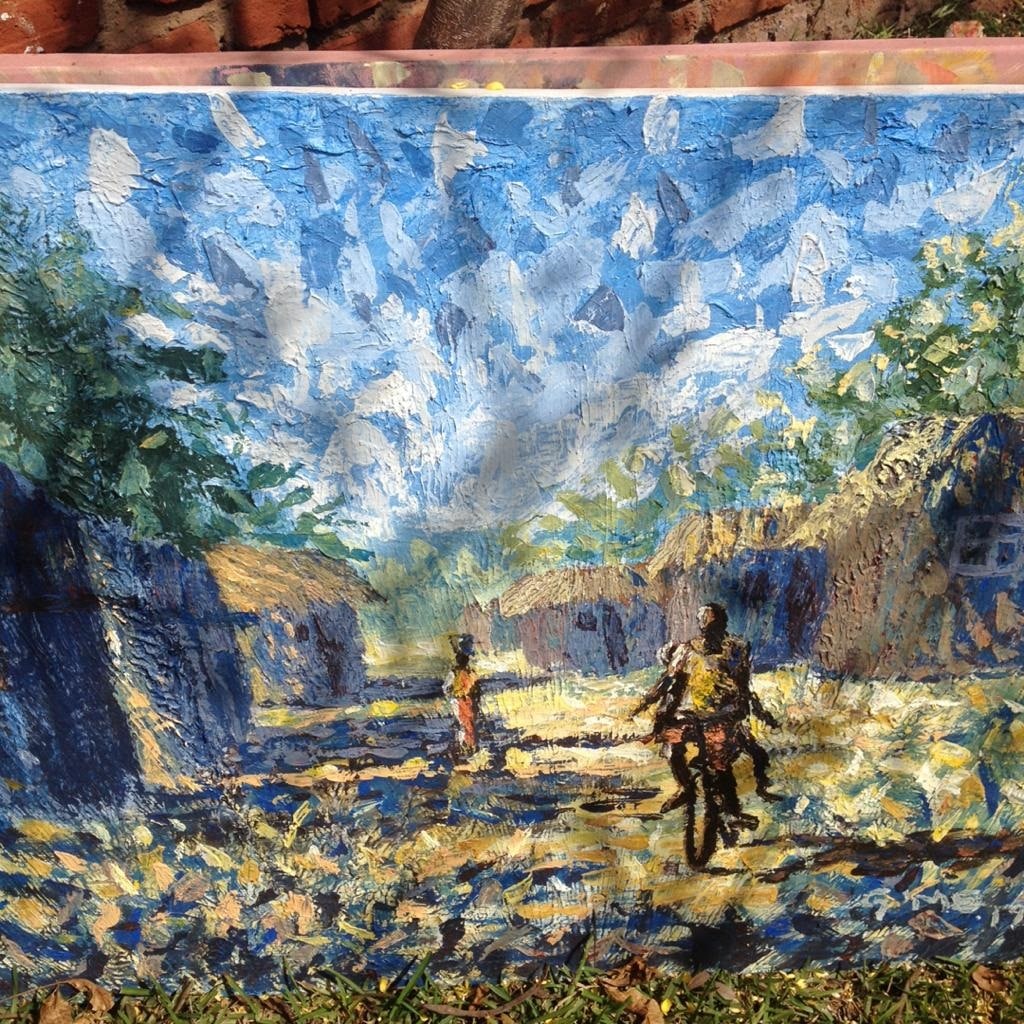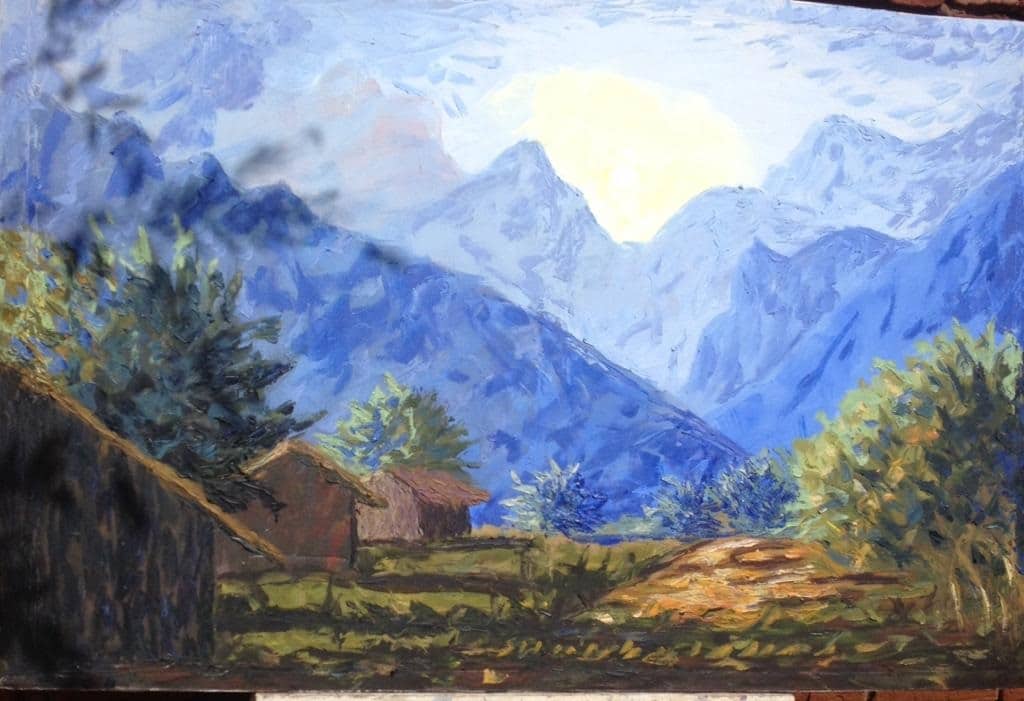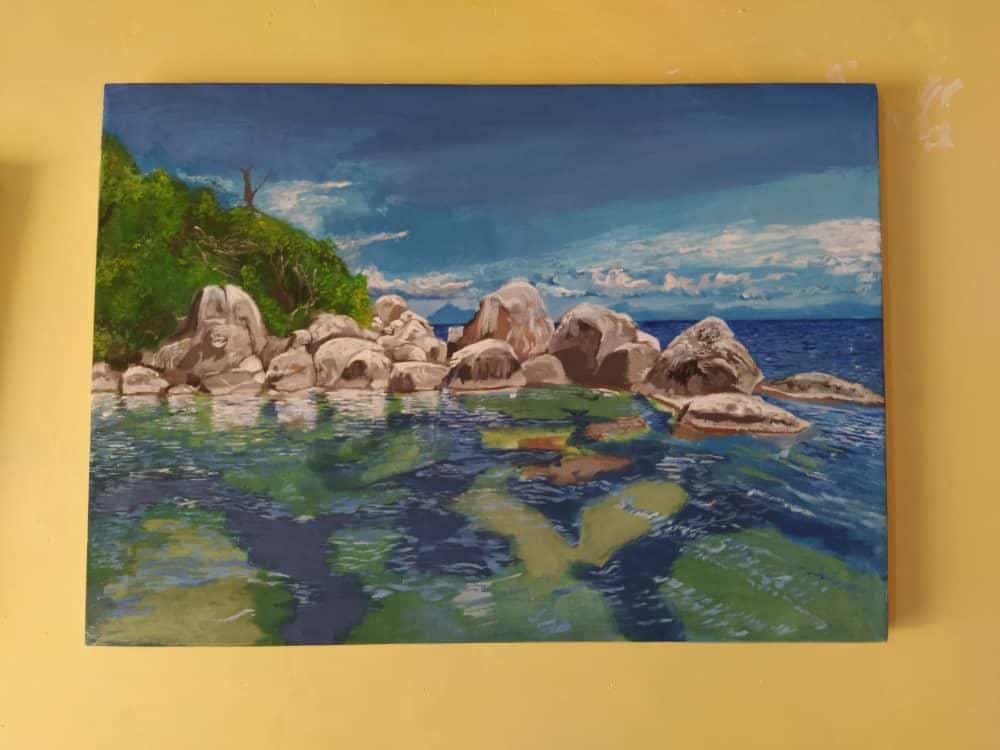Bayethe Joe Kamvantope is a painter and was born and is based in Lilongwe, Malawi. Still in his early twenties, he has been painting since 2018. He was forced to drop out of college after he lost his father in 2015. His mum had passed away earlier in 2003. He is the oldest son of 6 siblings.

Bayethe Joe Kamvantope – Painter
AGN: Why did you become a painter?
BJK: I have been sketching and drawing cartoons since childhood. I used to play soccer when I was younger but developed a breathing condition and was told I shouldn’t play soccer or engage in active sports any more.
With additional time on my hands, through experimentation I came to the realisation that painting was something I had an affinity for.
I began painting in earnest in my teens after my dad passed away. I find painting very therapeutic, unlike others who may get lost in music or other art forms/activities, for me painting is the activity that I enjoy more than anything else.
AGN: Did you receive any artistic training or are you mainly self taught?
BJK: I am self taught. In order to improve my technique and learn more I have mainly focused on reading and watching YouTube videos. At times I have received guidance from a friend who is a portrait artist.

AGN: Who are your artistic influences and why?
BJK: Locally, Malawian visual artist Nyangu Tchodola continues to be a source of inspiration. He encapsulates the essence of nature through his work from a Malawian perspective that speaks to me on a deeper level. Internationally the likes of Van Gogh, Picasso and Basquait have struck a chord.
They are undoubtedly unique in their own ways yet they all possess the power to invoke a conversation through one’s eyes as a result of their artistic abilities.
AGN: How much exposure has your work had?
BJK: Not that much as yet. I have previously hung work at a local gallery called La Gallaria here in Lilongwe.
In May of last year the opportunity arose to exhibit in Italy at the ‘Pocket Art Studio’ art gallery for the exhibition ‘The Journey of Art’, then COVID-19 happened so nothing eventually transpired.
I have been involved with the Wildlife Society of Malawi (WESM) on an artistic basis so some people have seen what I do and heard of me through that. Obviously my involvement there is about the work of the organisation rather than a platform geared towards my art.
AGN: Is there a philosophy you seek to amplify through your work?
BJK: I don’t believe I have got there yet. I would love to get to a stage where this becomes a reality. At present I am still developing and feel there is some way to go before I arrive at that stage.

AGN: Is interdisciplinary artistic collaboration ((e.g. painting and poetry) widely embraced in Malawi and is it something you like to do?
BJK: It is something that does happen here and I have been invited to do so several times however the right moment hasn’t presented itself. It is only a matter of time before I embark on my first collaboration of this nature.
AGN: You are not yet 24 years old and lost your mum at the age of 5 and your dad before the age of 20. To what extent did these major losses impact your outlook on life?
BJK: My decisions tend to be more weighted and I am very reflective. A lack of a parental safety net has probably contributed to my cautious outlook. However, in general I remain hopeful as I am optimistic by nature. I know people who have had it more difficult than me and I don’t wait around hoping for pity or favour. No matter the hand one is dealt you can only try your best.
AGN: What key change would you like to see come about with regards to how people perceive art in your country?
BJK: The sector is highly dependent on tourists for artists to realise any commercial gain. Only very few artists can become well-off through local patronage. However, people do buy expensive goods here such as cars, jewellery and so on. I do appreciate Malawi is not a wealthy country however of the wealthy people we do have far too few appear to purchase art. I feel a better appreciation for locally produced art could impact the fortunes of artists favourably and better equilibrate the market so it is not overly dependent on tourists.
I attended a private school before transferring to a public school when my circumstances suddenly changed. The difference in terms of how arts education was embraced quickly became apparent.
There was zero provision for arts education at my public school. This is not uncommon for public schools across the country. I would like to see the government put resources into arts education.
I feel studying art can stimulate a person’s creative/cognitive ability even if they are not seeking to pursue art as a profession. It can also imbue people with more of an appreciation for art so that when they are older and have began their professional careers they are more likely to purchase art.
My desire isn’t a selfish wish to influence the environment in order to realise more buyers of art. In many places around the world art is big business and it creates employment for many people who are not artistic too. I feel it makes good economic sense to cultivate the creative industry by stimulating young minds upwards amongst other things.

AGN: What would you like to achieve through your art in terms of contributing to the development of your country?
BJK: I would like to be the Walt Disney of Malawi. I am a big fan of animation and have lots of stories to tell. A major studio would be impactful in the country in all sorts of ways.
Previous ‘Arts View’ interviews are available here; archive
© 2021 All rights reserved - Ri Iyovwaye on behalf of African Global Networks (AGN) - Mar 2021
